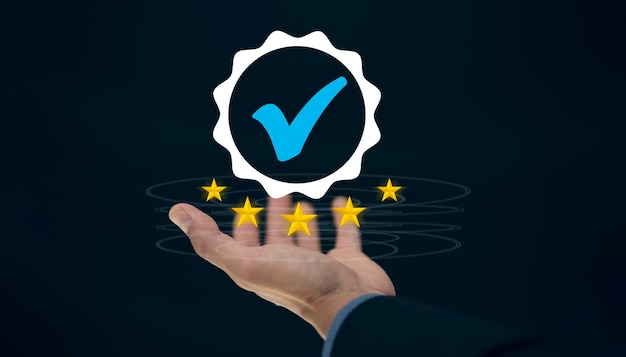Customized Agile Frameworks
Training and Workshops
Tailoring Agile frameworks involves selecting and customizing methodologies such as Scrum, Kanban, or hybrid approaches to fit the organization’s unique culture, size, industry, and project requirements. Customization ensures that Agile practices are effectively implemented and sustainable across teams and departments.
Agile training and workshops are essential for educating teams and stakeholders on Agile principles, methodologies, roles, and practices. These sessions aim to build foundational Agile knowledge, promote understanding of Agile values, and equip teams with the necessary skills to successfully adopt and implement Agile practices in their daily work.

Coaching and Mentoring
Agile coaching and mentoring provide ongoing guidance, support, and expertise to Agile teams, Scrum Masters, Product Owners, and other stakeholders. Coaches help teams navigate Agile frameworks, facilitate effective meetings (e.g., sprint planning, retrospectives), and promote continuous improvement. Mentoring sessions focus on addressing challenges, refining Agile practices, and fostering a culture of learning and collaboration.
Agile Practices Implementation
Quality services for next-gen businesses
Implementing Agile practices involves introducing methodologies like daily stand-ups, sprint planning, retrospectives, and backlog grooming. These practices encourage transparency, collaboration, and iterative development, enabling teams to deliver valuable products or services more efficiently and adapt to changing requirements.
When pivoting to digital, brands need protection at the core with process efficiency that keeps pace with the speed of business. Our business process assurance solutions bring an industry-aligned, efficiency-driven approach that ensures end-to-end quality and compliance of core IT for brand protection. With this offering we assure business processes, system resilience, regulatory compliance and operational readiness.
Developing Agile metrics and reporting mechanisms tracks team performance, project progress, and Agile maturity. These metrics measure key performance indicators (KPIs) such as velocity, sprint burndown, and customer satisfaction, providing visibility into Agile success, identifying areas for improvement, and supporting data-driven decision-making.
Engaging Product Owners and stakeholders ensures clear communication, alignment of priorities, and effective management of product backlogs. Agile encourages collaboration between stakeholders and Agile teams to prioritize features, validate requirements, provide feedback, and ensure the delivery of valuable outcomes that meet customer needs.
Fostering a culture of continuous improvement involves embracing Agile values such as transparency, inspection, and adaptation. Agile promotes regular retrospectives, where teams reflect on their processes, identify opportunities for improvement, and implement changes to enhance productivity, quality, and collaboration.
Agile Tooling and Technology
Implementing Agile tools and technologies supports Agile practices, collaboration, and project management. These tools include Agile project management software, collaboration platforms, version control systems, and automated testing tools. Agile tooling enhances communication, transparency, and efficiency, facilitating Agile adoption and improving team productivity.
Risk Manage
Incorporating Agile practices for risk management involves identifying, assessing, and mitigating risks throughout the project lifecycle. Agile encourages proactive risk identification, frequent reassessment.
Customer-Centric Approach
Adopting a customer-centric approach aligns Agile teams with customer needs, preferences, and feedback. Agile principles emphasize delivering incremental value, incorporating customer feedback into iterations.
Agile Portfolio Manage
mplementing Agile portfolio management practices prioritizes projects, allocates resources, and manages portfolios based on strategic business goals and value delivery.
DevOps Integration
Integrating Agile with DevOps practices promotes collaboration between development and operations teams, streamlines processes, and accelerates software delivery.
Remote Agile Implement
Supporting Agile implementation in remote or distributed teams involves leveraging virtual collaboration tools, Agile methodologies, and communication practices tailored for remote work environments.
Measuring Success
Establishing KPIs and success criteria evaluates the impact of Agile transformation on organizational performance, productivity, and business outcomes.
Executive Alignment
Engaging leadership is crucial for Agile transformation success. This involves gaining buy-in from executives and senior management to ensure support, sponsorship, and alignment with Agile principles.
Intelligent workplace
Implement a “cloud done right” solution that enables organizations to unlock the full potential of hybrid and multi-cloud estates at enterprise scale.
Cloud security
Implement a “cloud done right” solution that enables organizations to unlock the full potential of hybrid and multi-cloud estates at enterprise scale.
Intelligent edge
Implement a “cloud done right” solution that enables organizations to unlock the full potential of hybrid and multi-cloud estates at enterprise scale.
Digital insights
Implement a “cloud done right” solution that enables organizations to unlock the full potential of hybrid and multi-cloud estates at enterprise scale.
Amazon Web Services Business Group
Implement a “cloud done right” solution that enables organizations to unlock the full potential of hybrid and multi-cloud estates at enterprise scale.
Microsoft Azure Business Group
Implement a “cloud done right” solution that enables organizations to unlock the full potential of hybrid and multi-cloud estates at enterprise scale.
Google Cloud Business Group
Implement a “cloud done right” solution that enables organizations to unlock the full potential of hybrid and multi-cloud estates at enterprise scale.
Featured Work

Implementing mechanisms for ongoing feedback from stakeholders, users, and team members to refine products and processes iteratively.
Continuous Feedback Loops

Encouraging self-organizing teams with autonomy to make decisions, solve problems, and deliver value independently.
Empowered Teams

Applying lean principles to eliminate waste, optimize processes, and maximize the delivery of customer value.
Lean Thinking
Latest Thinking

Embracing flexible planning approaches that prioritize responding to change over following a rigid plan, adapting to evolving priorities and market conditions.
Adaptive Planning

Delivering work in small, manageable increments to obtain feedback early and frequently, ensuring alignment with customer expectations.
Incremental Delivery

Creating physical or virtual spaces that facilitate collaboration, communication, and transparency among Agile teams.
Collaborative Workspaces
Agile Leadership
vbc leads in Application Quality Assurance
ISG recognized vbc as a leader in Application Quality Assurance in the US and Europe. “vbc has a robust application quality assurance practice, with more than 30 proven AI use cases in addition to IPs and accelerators across the testing lifecycle.”

Community of Practice
Establishing communities of practice where Agile practitioners share knowledge, best practices, and lessons learned to foster continuous learning and growth.

Agile Mindset
Cultivating an Agile mindset throughout the organization, emphasizing values such as openness, courage, respect, and commitment to continuous improvement.

